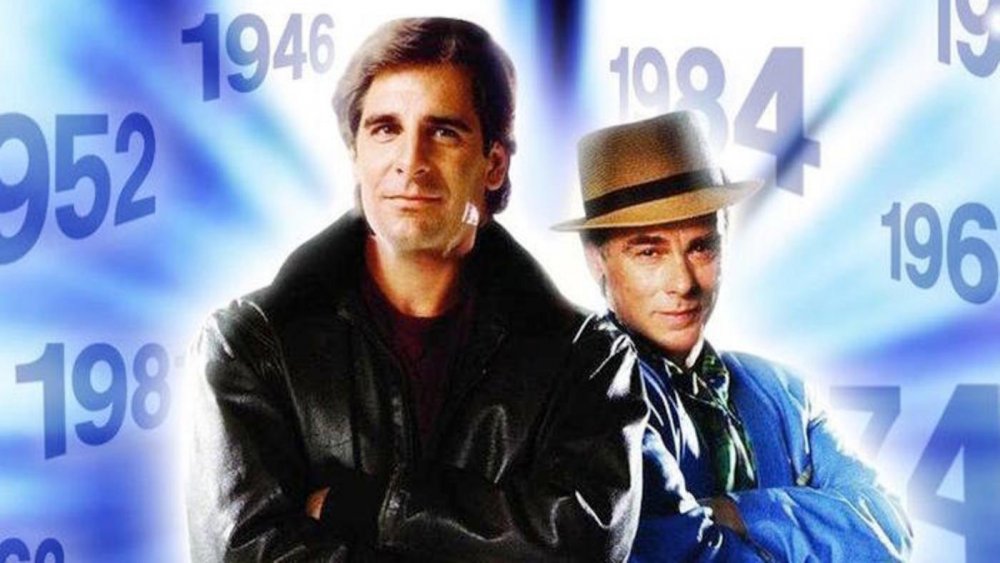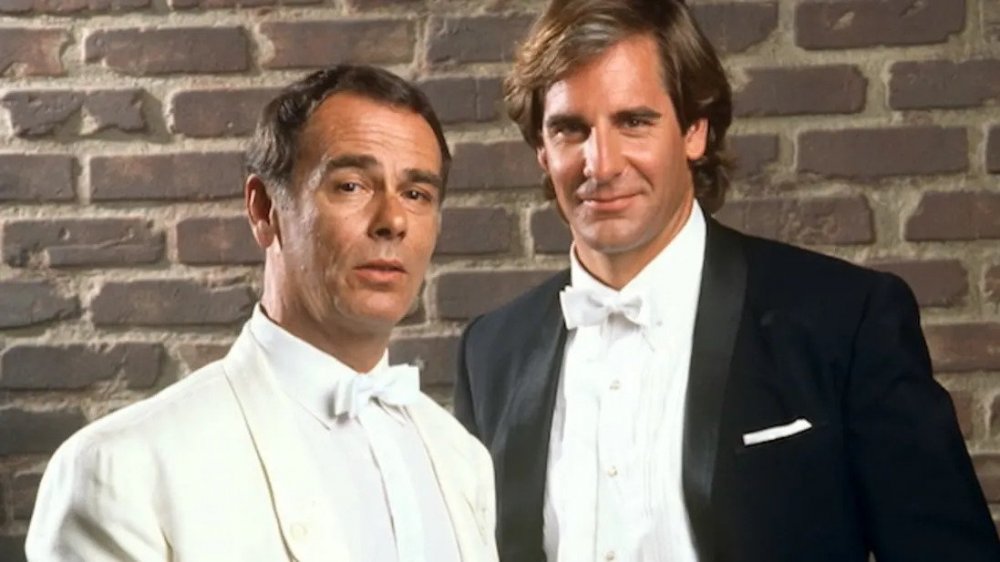The Real Reason Quantum Leap Was Cancelled
Quantum Leap met its small-screen end decades ago, but the ambiguous fate of its hero has kept love alive for the series in the years since.
The show, which ran for 5 seasons on NBC between 1989 and 1993, was created by TV auteur Donald P. Bellisario, who revealed in a 2012 interview that it sprang from his plans to write a time-traveling anthology series. Starring Scott Bakula (NCIS: New Orleans) and Dean Stockwell (Battlestar Galactica), it became a near-instant cult-classic, and today is still recognized as one of the best-ever TV shows about time travel.
Its story began after the U.S. government threatened to pull funding from physicist Dr. Sam Beckett's (Bakula) "Quantum Leap" project. In an attempt to save his work, he tested his project's accelerator, but made a small miscalculation that threw him back in time. He arrived with partial amnesia to find not only that he "leaped" through history, but into someone else's body. His real self was only visible to a hologram of his friend Admiral Al Calavicci (Stockwell), who, along with supercomputer Ziggy (voiced by Deborah Pratt), worked to help him get back home. As they discovered, the ordeal required Beckett to identify the problem that connected him to that person in time and solve it, or get trapped in their body forever.
The show was rooted in science fiction, but it leaned heavily into the historical while tackling timely social issues. A hit with genre fans, Quantum Leap earned its fan-favorite status through a combination of Bakula and Stockwell's chemistry, and the veteran storytelling chops of Battlestar Galactica and Magnum P.I. writer Bellisario. Its distinct blend of procedural drama and sci-fi also made it a hit among critics, with the series and its stars earning countless Emmy nominations and two Golden Globes during its run. But if it was so loved, what was the real reason Beckett never leaped again after the fifth season?
Quantum Leap was cancelled due to declining viewership
While the series had earned a dedicated fan base, season 5 saw a significant ratings drop, according to the Los Angeles Times. With not enough people watching, NBC was forced to pull the plug — but the show's road was a bumpy one that nearly ended much sooner.
NBC officially canceled Quantum Leap in 1993, but low viewership nearly did it in after its third season. The series' passionate watchers — or "leapers" — saved it the first time. Viewers launched fan clubs, hosted conventions, and even footed the $30,000 bill for Stockwell's Hollywood Walk of Fame star (via Time), and also carried out a letter-writing campaign that convinced NBC to propel Beckett through time for two more years. Yet, even the details around the iconic TV ending — and one of TV's most frustrating cliffhangers — prove that the series finale wasn't so final either.
When Bellisario was mapping out Quantum Leap's end, NBC hadn't decided whether to cancel or renew. So, he wrote an ending with Beckett choosing not to return home and instead continuing to jump and right wrongs. "I wasn't going to write a this-is-it kind of episode because I don't think that Quantum Leap is finished," Bellisario told the Times in 1993. "So I wrote a show that gives some of the reasons that he's been leaping around... but at the end, it's wide open as to what he's going on to next."
That wasn't the only ending Bellisario wrote. Redditor u/Leaper1953 posted footage of a long-rumored alternate ending featuring Al weighing whether to follow Beckett after an eerily similar alternate ending script popped up on fansite Al's Place. The series may have met a premature end, but rumors of NBC streamer Peacock's interest in a Quantum Leap revival (via SlashFilm) coupled with Bellasario's vision means that Beckett and Sam may one day leap again.

